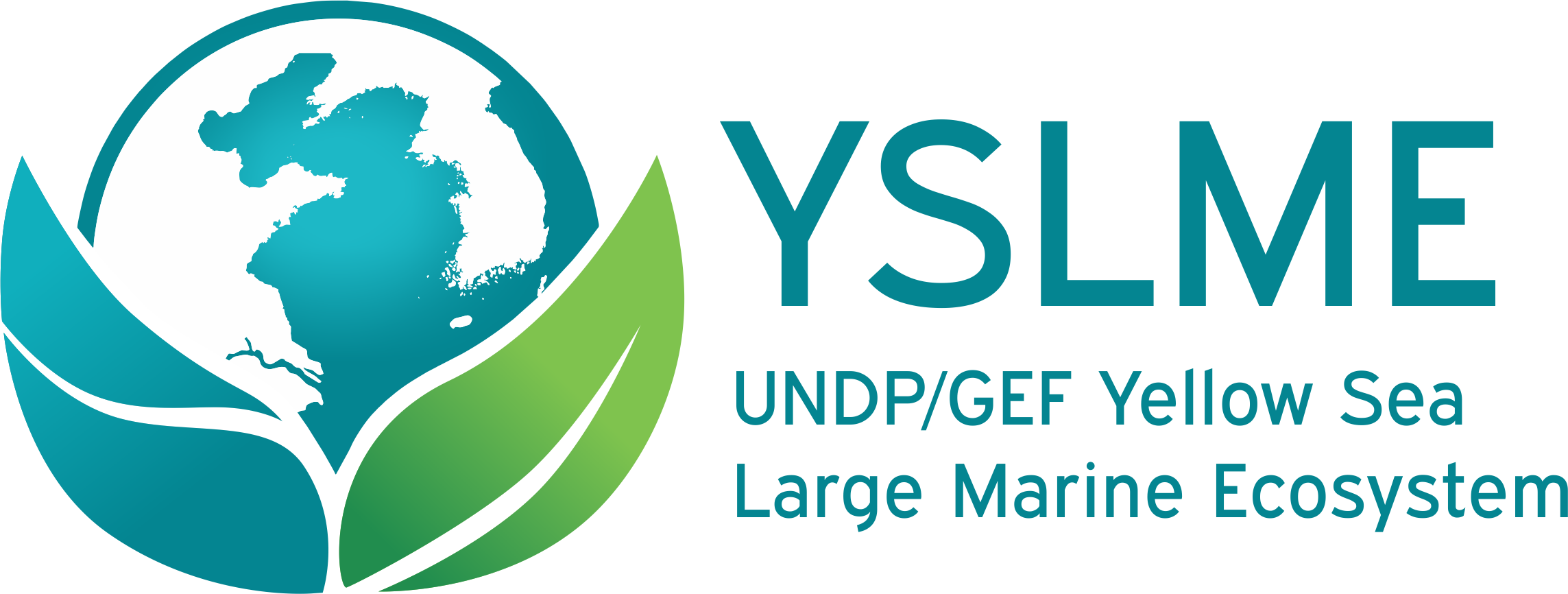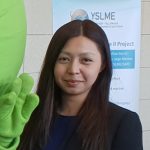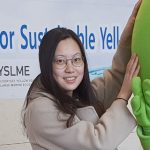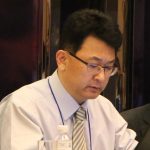Qingdao, PR China – On the afternoon of 27 July, a group of 21 volunteers met at the east gate of Silver Beach of Huangdao District, Qingdao. These stakeholders from Qingdao, including university students, employees of nearby companies and three mothers with kids, went to the beach to use their hands to clean the marine litter. They also used pencils and electronic balance to document the types and quantities of marine litter so that they can use scientific data to communicate the magnitude of pollution to the sea by human beings, with the mission of safeguarding the origins of life, so sworn the group standing under burning Sun.

The volunteers taking their oath to protect the beach.
Photo credit: China Petroleum University
The monitoring was divided into three parts: preparation, beach cleaning and summarization. After the volunteers were gathered together, the organizer, Mr. Fang Junfei, a student of the China Petroleum University and focal point of the BlueRibbon Ocean Conservation Association (BROCA), introduced the steps of scientific research and beach cleaning, then distributed the beach cleaning tools, bags and garbage inventory forms. All the research members took an oath in a small ceremony with the waves of the sea as backdrop, and instilling a stronger sense of responsibility in them.
All members were divided into five groups, each group thoroughly cleaned a sampling area of 50 meters long and 5 meters wide, after which the remaining area was quickly cleaned. All kinds of litter, such as plastic garbage, metal garbage, cigarette butts and paper were picked up piece by piece, weighed, and results were recorded on the inventory form.

Volunteers recording data on the kinds of litter.
Photo: Yinfeng Guo
Nearly 400 pieces of garbage were collected, among which plastic garbage accounted for 65.3%, and mixed materials and other types of litter accounting for 22.6%.
At five o’clock, the volunteer researchers gathered together to summarize the results of the activity and each shared reflections of their participation. One of the volunteers, who was also active in garbage collection in Fushan Mountain, another scenic spot in Qingdao, asked Mr. Fang to also guide his team to systematically document the garbage for more effective communication with people. Everyone now understands how hard it is to keep the beach clean and keep the ocean free from being polluted after their participation in the beach cleaning. After the group photo, BROCA, the organizer, distributed the reports conducted by China and RO Korea on the state of the Yellow Sea after 10 years of implementation of the Strategic Action Programme of the Yellow Sea Large Marine Ecosystem. Volunteer certificates were also distributed to participants.

Photo credit: China Petroleum University
The above activity is one of the beach cleaning and marine litter inventory events organized by BROCA in collaboration with Shanghai Rendu Ocean Non-Profit Organization Development Center. BROCA is a native NGO headquartered in Sanya, Hainan Province, with members from 34 universities, 16 enterprises, 6 governments, 15 primary and secondary schools. Rendu is the only non-profit organization (NPO) in China dedicated to education, awareness raising, policy development and research on marine debris. Results of the inventory will be integrated in the annual report of marine litter in China published by Rendu since 2015. According to Rendu Program Officer, Mr. Feng XIAO, at the 3rd YSLME Science Conference, beach cleaning and inventory have been conducted in 55 locations of 36 cities in China through the joint efforts of 38 partners.
BROCA, Rendu and Our Seas of Asia Network (OSEAN) of RO Korea are the NGOs in China and RO Korea that UNOPS has partnered with through the Yellow Sea Grant Program of the UNDP/GEF YSLME Phase II Project in achieving the target of significant reduction in marine litter quantity in beaches of the two countries. In other parts along the Yellow Sea coast, YSLME partners are actively engaged in preventing waste and litter entering the coastal and marine environment and further developing public awareness around this issue. In the Jingzi fishing village in Weihai (Shandong Province), BROCA is engaged in improved collection and disposal of domestic waste, while at the same time preventing plastic waste from aquaculture operations from becoming marine litter.


Photo credit: BROCA
Under the YSLME Project, the YSLME marine litter baseline report has been prepared, and another initiative, Clean Beach City Alliance, is currently under development to serve as a platform of information and knowledge exchange, technology transfer and policy dialogue for targeted beneficiaries of business associations, the academe, NGOs, youth and other stakeholders in China and RO Korea.
For more information on UNDP/GEF/UNOPS responses to marine litter, please contact Mr. Yinfeng Guo, Project Manager of the UNDP/GEF YSLME Phase II Project at yinfengg@unops.org.










